Testoviron Depot Testosterone Enanthate Injection
$30.00 – $200.00Price range: $30.00 through $200.00
Testoviron Depot Injection is used to treat low testosterone levels in men. It contains Testosterone Enanthate, which helps restore normal testosterone levels to support muscle strength, energy, and sexual health.
| Pack Size | Price | Price / Unit | Quantity | |
|---|---|---|---|---|
| 1 Injection | $30.00 | $30.00/ unit | ||
| 5 Injections | $110.00 | $22.00/ unit | ||
| 10 Injections | $200.00 | $20.00/ unit |
Looking for bulk / B2B pricing? | Send Inquiry |

| SKU | 11044 |
| Manufacturer | Zydus Healthcare Limited |
| Categories | Hypogonadism |
| Delivery Time | 10 - 14 Working Days |
| Strength | 250mg |
Introduction to Testoviron Depot Injection
Testoviron Depot 250 Injection is a medicine used in the treatment of male hypogonadism caused due to low testosterone levels. It is only prescribed to men with known medical conditions. It helps in restoring the level of testosterone in the male body.
Testoviron Depot 250 Injection is injected directly into the skin or muscles under the medical supervision of a doctor. The dose and how often you take the injection depends on what you are using it for. Your doctor will decide how much you need to improve your symptoms. You should take this medicine for as long as it is prescribed for you.
Testoviron Depot 250 Injection 1 ml will be administered by a healthcare professional; do not self-administer. In some cases, you may experience side effects such as injection site reactions, polycythemia (high number of red blood cells), headache, and depression. You are advised to talk to your doctor if the side effects persist or worsen
Uses of Testoviron Depot Injection
Testoviron Depot Injection, containing testosterone enanthate, is primarily prescribed for the treatment of conditions related to testosterone deficiency or hypogonadism in men. Here are some common uses of Testoviron Depot:
- Testosterone Deficiency (Hypogonadism)
- Delayed Puberty in Boys
- Gender-Affirming Hormone Therapy
- Breast Cancer in Women
How Does Testoviron Depot Injection Works?
Testoviron Depot Injection contains testosterone enanthate, a synthetic version of the natural male hormone testosterone. When injected into the muscle, the testosterone is gradually released into the bloodstream, where it acts to restore or increase testosterone levels in the body. Testosterone plays a crucial role in the development and maintenance of male reproductive tissues, muscle mass, bone density, and the production of red blood cells.
The injection works by supplementing the body with testosterone in individuals who have low testosterone levels due to conditions such as hypogonadism, delayed puberty, or hormone imbalances. In men with low testosterone, this therapy helps alleviate symptoms such as fatigue, reduced libido, erectile dysfunction, mood changes, and loss of muscle mass. By restoring testosterone to normal levels, Testoviron Depot promotes overall well-being and sexual health.
Side Effects of Testoviron Depot
Common Side Effects
- Injection Site Reactions
- Acne and Skin Changes
- Mood Changes
- Water Retention
- Increased Red Blood Cell Count
- Changes in Libido
Serious Side Effects
- Cardiovascular Issues
- Liver Damage
- Prolonged Erections (Priapism)
- Blood Clots
- Breast Enlargement or Tenderness (Gynecomastia)
- Sleep Apnea
Dosage of Testoviron Depot Injection
Testoviron Depot (testosterone enanthate) injection can vary depending on the individual’s specific medical condition, the severity of testosterone deficiency, and the healthcare provider’s assessment. It’s important to note that the dosage should be determined by a qualified healthcare professional based on a thorough evaluation of the patient’s health and hormonal profile.
Generally, Testoviron Depot is administered through intramuscular injection, usually into the gluteal muscle. The frequency of injections and the specific dosage will depend on the individual’s needs. Common dosages may range from 50 mg to 400 mg or more per injection, and injection intervals may vary from every two weeks to every four weeks.
Here are some general considerations regarding dosage:
- Initial Dosage and Titration
- Maintenance Dosage
- Individualized Treatment
- Monitoring and Adjustments
- Health Considerations
How To Manage Side Effects?
Managing side effects of Testoviron Depot (testosterone enanthate) injection involves a combination of proactive measures, communication with healthcare providers, and adherence to prescribed guidelines. If you experience any side effects, it’s crucial to consult with your healthcare professional before making any adjustments to your treatment plan. Here are some general strategies for managing side effects:
- Open Communication
- Regular Monitoring
- Injection Site Care
- Managing Androgenic Effects
- Fluid Retention
- Mood Changes
- Libido Changes
- Gynecomastia
Warning & Precautions
Testoviron Depot Injection, like any medication, comes with specific warnings and precautions that individuals should be aware of before starting the treatment. It’s crucial to follow these guidelines and communicate with your healthcare provider regarding any concerns or potential risks. Here are some warnings and precautions associated with Testoviron Depot:
1. Allergies:
- Individuals with known allergies to testosterone or any of the components of Testoviron Depot should not use the medication. Allergic reactions can be severe and require immediate medical attention.
2. Prostate Health:
- Testoviron Depot may affect the prostate, potentially stimulating its growth. Before starting testosterone replacement therapy, individuals with a history of prostate issues, such as prostate cancer or benign prostatic hyperplasia (BPH), should be thoroughly evaluated by a healthcare professional.
3. Cardiovascular Health:
- Testosterone replacement therapy has been associated with an increased risk of cardiovascular events, particularly in individuals with pre-existing cardiovascular conditions. It’s important to assess cardiovascular health before initiating therapy, especially in older individuals.
4. Liver Function:
- Liver function should be monitored during testosterone replacement therapy. If there are signs of liver dysfunction, such as jaundice or liver tumors, the use of Testoviron Depot may need to be reevaluated.
5. Erythrocytosis:
- Testosterone can stimulate the production of red blood cells, leading to erythrocytosis. Regular monitoring of hematocrit levels is essential to avoid complications such as blood clots.
6. Sleep Apnea:
- Testosterone replacement therapy may worsen sleep apnea in individuals who already have this condition. It’s important to assess and manage sleep apnea before starting therapy.
7. Psychiatric Effects:
- Testosterone replacement therapy can affect mood, potentially leading to psychiatric effects such as increased anxiety, depression, or aggression. Individuals with a history of mental health issues should be monitored closely.
Safety Advice
Testoviron Depot (testosterone enanthate) injection should be approached with caution, and individuals should follow safety advice provided by their healthcare provider. Here are some general safety recommendations for individuals using Testoviron Depot:
- Medical Evaluation
- Health Monitoring
- Dosage and Administration
- Injection Technique
- Prostate Health Assessment
- Cardiovascular Evaluation
- Liver Function Monitoring
- Erythrocytosis Monitoring
- Sleep Apnea Assessment
Frequently Asked Questions
1. How is the Dosage of Testoviron Depot Determined?
The dosage of Testoviron Depot is determined based on the individual’s specific medical condition, severity of testosterone deficiency, and response to treatment. Dosages can vary from 50 mg to 400 mg or more per injection.
2. Can Testoviron Depot be used in Women?
Testoviron Depot is not intended for use in women, especially those who are pregnant or breastfeeding, as testosterone exposure during pregnancy can have adverse effects on the fetus.
3. Is Testoviron Depot Safe for Older Individuals?
Caution is advised in older individuals, and a thorough assessment of cardiovascular health and other factors is important before initiating testosterone replacement therapy.
4. How Often Should Hormone Levels Be Monitored During Testoviron Depot Therapy?
Hormone levels, including testosterone and other relevant parameters, should be regularly monitored. The frequency of monitoring will depend on individual factors and the healthcare provider’s recommendations.
| Pack Size | 1 Injection, 10 Injections, 5 Injections |
|---|---|
| Price/Unit | $20/unit, $22/unit, $30/unit |
1 review for Testoviron Depot Testosterone Enanthate Injection
Add a review Cancel reply
Related Products
No related Products Found

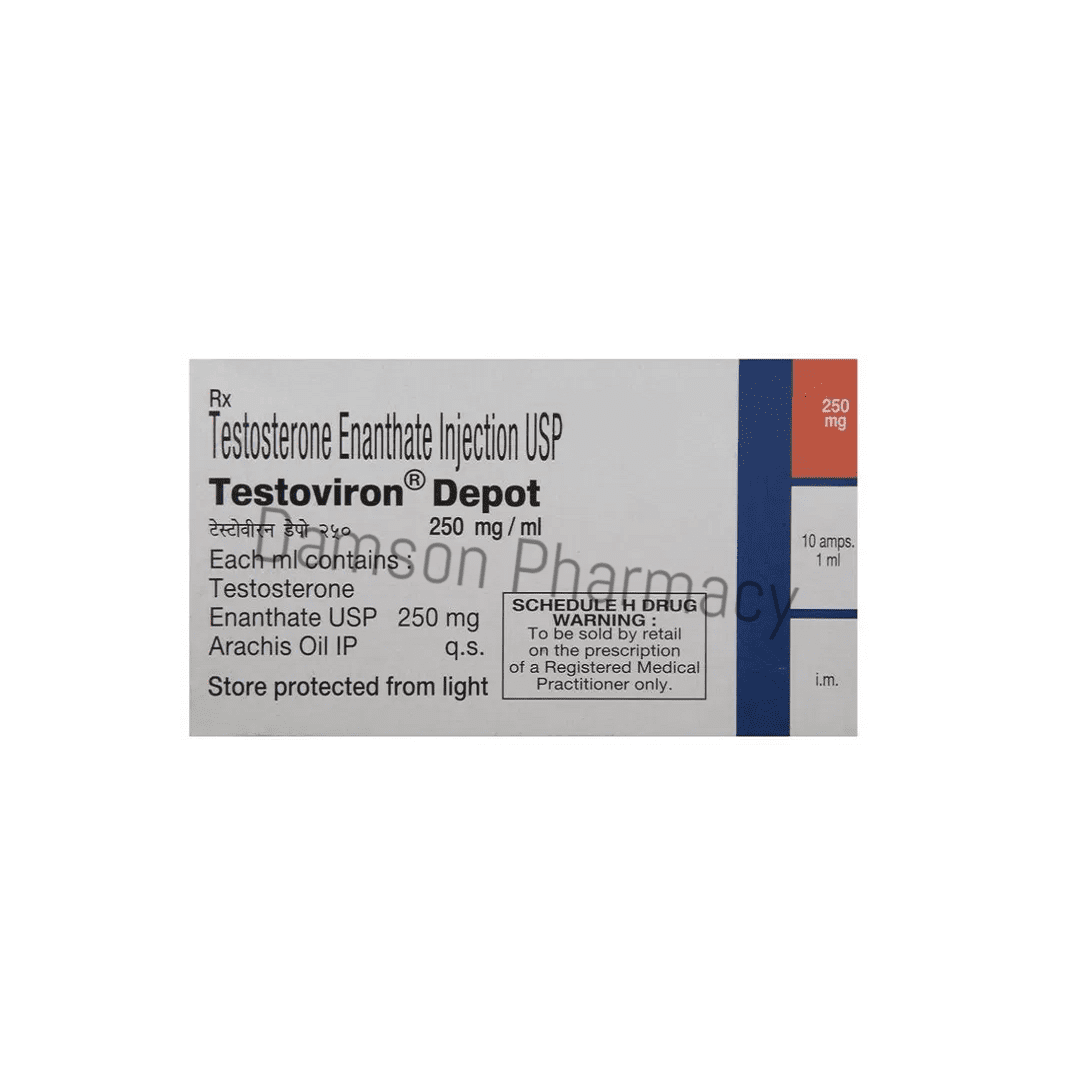
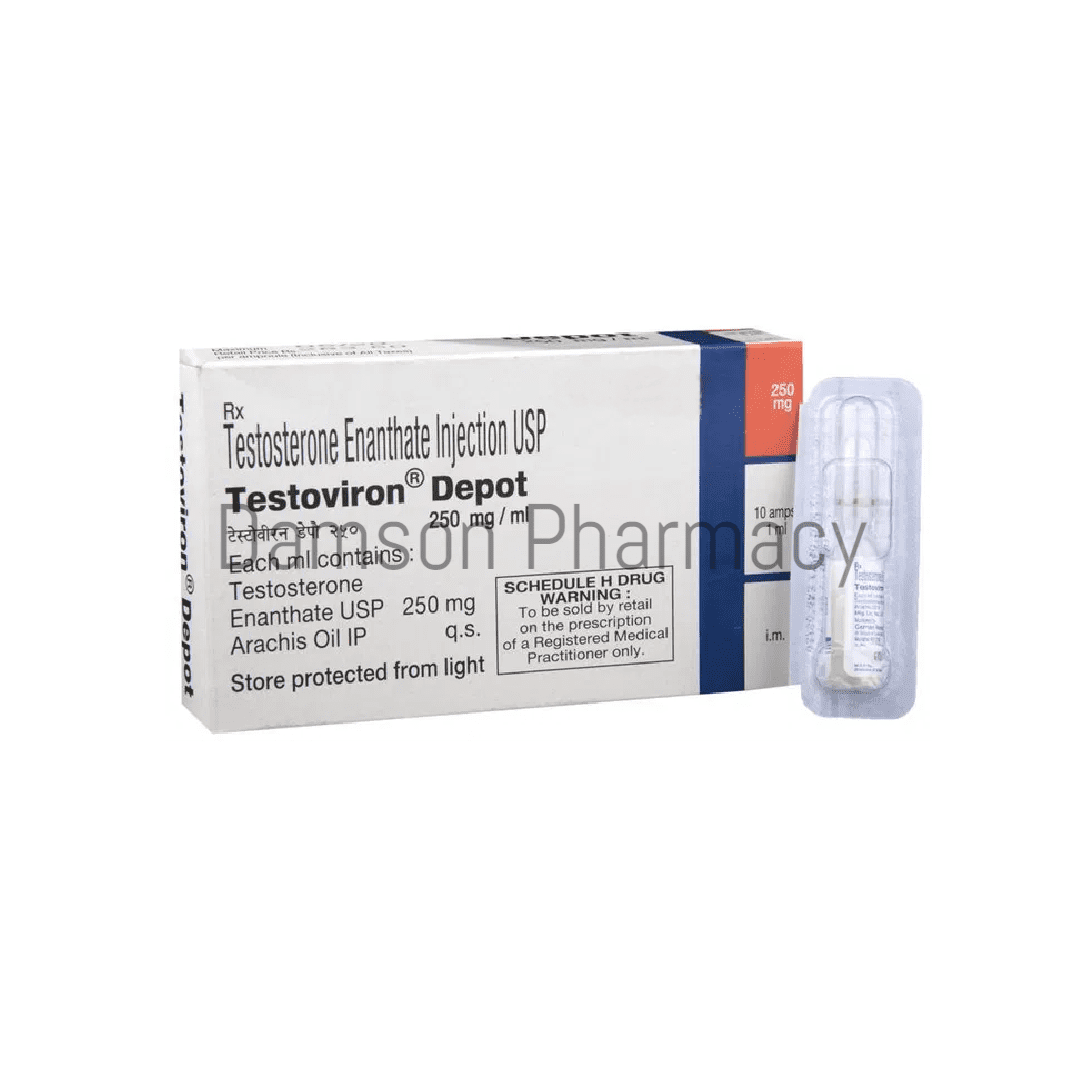
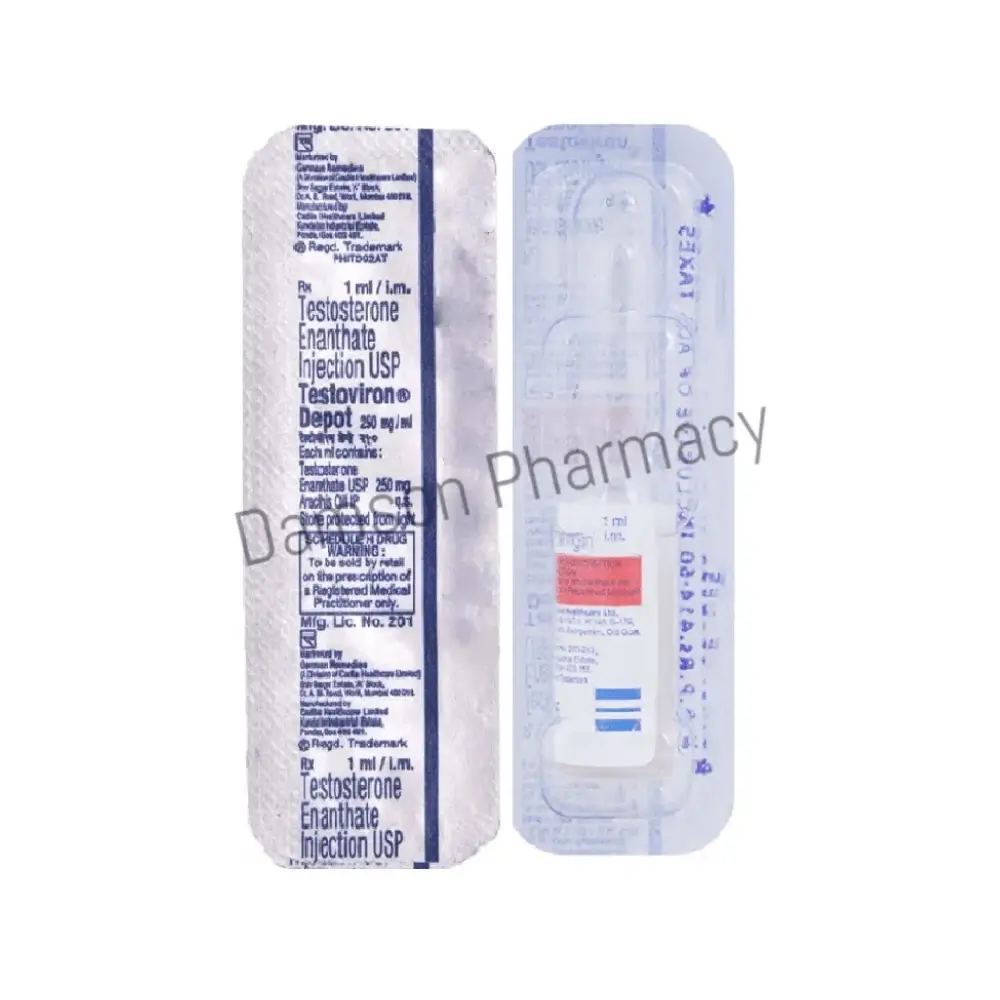
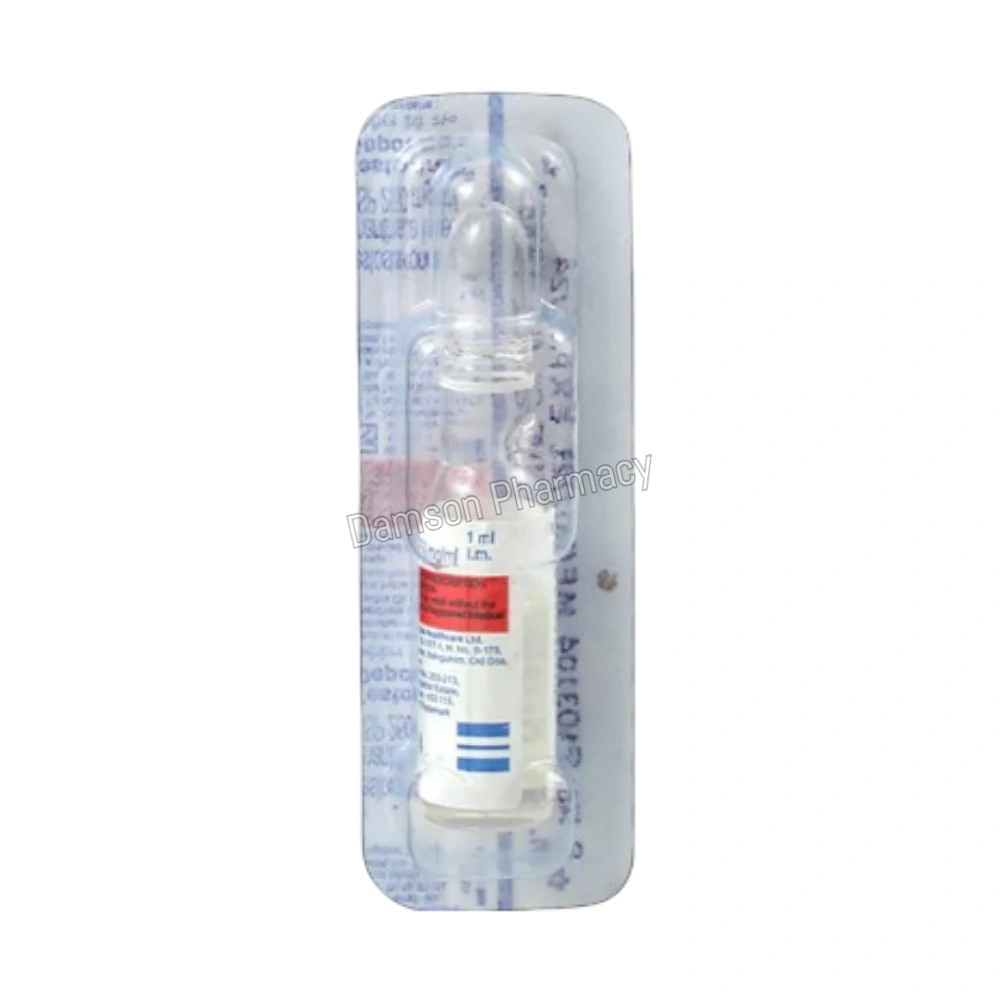


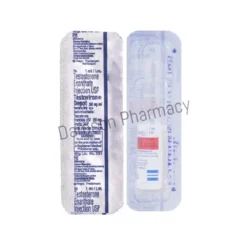
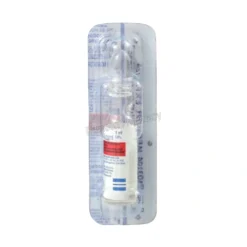
Carolyn –
Damsonpharmacy products at reasonable prices. My orders was quickly received. Thank You!